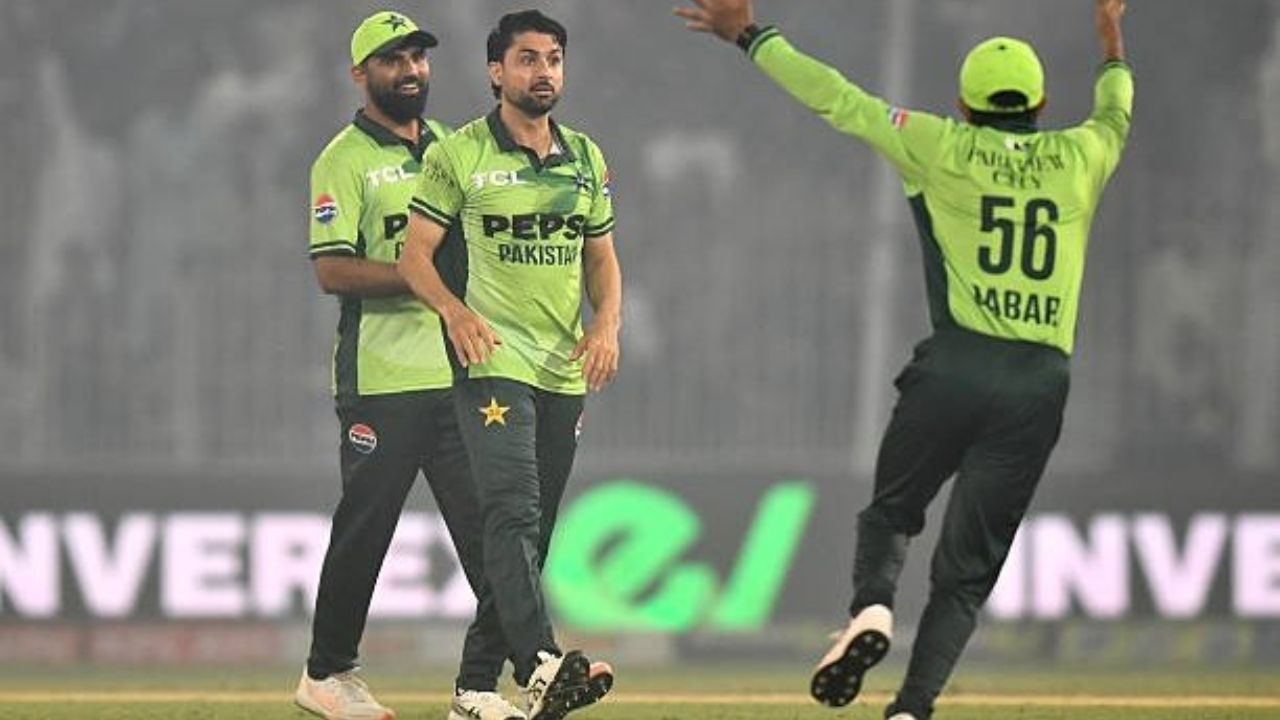NEW DELHI: Leg-spinner Abrar Ahmed flummoxed South Africa’s inexperienced batters with career-best figures of 4-27, leading Pakistan to a series-clinching seven-wicket victory in the third and final ODI on Saturday.
South Africa, which finally won its first toss on the tour after losing seven in a row across formats, was bowled out for 143 in 37.5 overs, losing its last eight wickets for just 37 runs.
Opening batter Saim Ayub then played a belligerent 77, featuring 11 fours and a six, to guide Pakistan to 144-3 in 25.1 overs, sealing a 2-1 series win.
🚨 MATCH RESULT 🚨
— Proteas Men (@ProteasMenCSA) November 8, 2025
An unfortunate result in the decider as Pakistan seals a 7-wicket victory to take the three match ODI series 2-1. 🏆
This concludes the Pakistan tour, with #TheProteas Men now turning their focus to India next week. 🇿🇦 pic.twitter.com/k2oXeksGu6
Pakistan had won the first ODI narrowly by two wickets, while South Africa bounced back in the second match with Quinton de Kock’s unbeaten century, winning by eight wickets in Faisalabad, which hosted its first international games in 17 years.
The Proteas had drawn the two-Test series 1-1, but Pakistan had already edged them 2-1 in the T20 series with back-to-back wins in Lahore.
Spin magic flusters South Africa
The left-handed opening pair of de Kock and Lhuan-dre Pretorius gave South Africa its third successive 70-plus start before the Proteas were strangled by spinners on a tricky wicket.
The pair began cautiously against Pakistan captain Shaheen Shah Afridi’s left-arm pace and off-spinner Saim Ayub before attacking fast bowler Haris Rauf.
Rauf, returning after a two-match ban for violating the ICC code of conduct during the Asia Cup in late September, was hit for three boundaries in his first over. De Kock got off the mark with back-to-back boundaries against Afridi as the pair added 72 runs.
Off-spinner Salman Ali Agha broke the partnership when he had Pretorius caught at long-on for 39, shortly followed by Tony de Zorzi taking an easy catch at extra cover.
De Kock became the second-fastest South African batter to reach 7,000 ODI runs in 158 innings after Hashim Amla. He raised his half-century with a reverse sweep off Mohammad Nawaz but was out lbw two balls later for 53, triggering a spectacular collapse.
Abrar picked up three wickets in two overs, dismissing debutant Rubin Hermann with a googly, clean bowling Donovan Ferreira, and knocking back Corbin Bosch’s off stump with a delivery that kept very low.
South Africa paid heavily for going on the backfoot against spinners, with Bjorn Fortuin trapped lbw by Nawaz, who finished with 2-31. Afridi then wrapped up the tail with two wickets in two balls as the Proteas, missing seven front-line white-ball players, were bowled out with more than 12 overs to spare.
“Not enough runs, we were probably looking at 250,” said South Africa captain Matthew Breetzke.
“It was tough conditions and unfortunately we lost too many wickets there … Abrar bowled really nicely. Unluckily I got out in his last over. I was looking to be more positive after that, but yeah there was variable bounce.”
Ayub cruises Pakistan
Pakistan wobbled early when Fakhar Zaman fell for his second successive duck, clean bowled by Nandre Burger off his second ball.
Ayub survived a close lbw appeal against Burger and cut freely against pace, racing to a half-century off 39 balls, with Babar Azam (27) also finding his rhythm with classic cover drives.
The pair added a brisk 65-run second-wicket stand before Babar was run out attempting the third run, falling short of his crease despite Bosch’s throw.
With just 14 required for victory, Ayub holed out to long-on for a consolation wicket, and Mohammad Rizwan (32 not out) alongside Salman Ali Agha finished the game with nearly half the overs to spare.
“It has been teamwork and we have worked very hard across the formats so credit goes to the players,” Afridi said after leading Pakistan to victory in his debut series as ODI captain.
“We didn’t get much help in the first five-six overs, but when the spinners came in, they made it tough. When you play international cricket, you have to be ready for all situations, so every player who came in took their chances.”
(With PTI Inputs)

